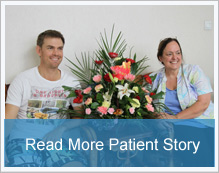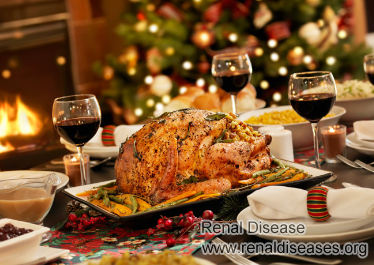Whatsapp: +8615512139310
- Email us:
 Christmas is around the corner, and everyone is busy preparing for hearty foods and presents for celebrating this funny festival. Despite the fun and joys, it is a really a concern for most kidney disease patients. Because patients have many dietary restrictions due to decreased renal function. Well then, what Christmas treats should be avoided for kidney disease patients?
Christmas is around the corner, and everyone is busy preparing for hearty foods and presents for celebrating this funny festival. Despite the fun and joys, it is a really a concern for most kidney disease patients. Because patients have many dietary restrictions due to decreased renal function. Well then, what Christmas treats should be avoided for kidney disease patients?
Normally, our kidneys have the functions of producing urine, discharging metabolic wastes and toxins out of the blood and maintaining the balances of water, electrolytes and acid-base. However, in case of renal disease, kidneys will lose these functions so that patients will suffer from related symptoms, like proteinuria, swelling, blood urine, itching, anemia, fatigue, etc. In order to control these symptoms, patents have to limit the intake of water, protein, potassium, phosphorus so as to reduce burdens to the kidneys.
Based on the principles of friendly-kidney diet, patients should limit or avoid the following foods at Christmas Day. Any questions, please email to us at renal-disease@hotmail.com or leave a message below directly! We are glad to help you! Merry Christmas!
1. Drinks
It is not recommended that kidney disease patients to drink alcoholic beverage weather it is beer, wine, or liquor.
Cola contains high phosphorus, which should be avoided by patients with high phosphorus level.
Of course, drink in moderation if patients really want to have and do not indulge in it.
2. Meats
Referring to meats, I have to mention turkey. Turkey is the traditional typical food at Christmas. But it is really a pity kidney disease patients cannot enjoy it with their families without limitation. Because turkeys sold on markets are often high in salt and fat which can increase kidneys’ workload. You can cook turkey by yourself so that you can master the amounts of table salt and salty marinades.
3. Desserts
It is important to avoid chocolate or just take it in small quantity because it is high in protein and potassium.
4. Fruits and vegetables
Since some fruits and vegetables contain rich potassium level, so, patients also should be careful when they are eating fruits and vegetables. High-potassium foods like bananas, prunes watermelon, oranges, tomatoes, pumpkin, nuts, kelp and so on. These foods should be limited or avoided.